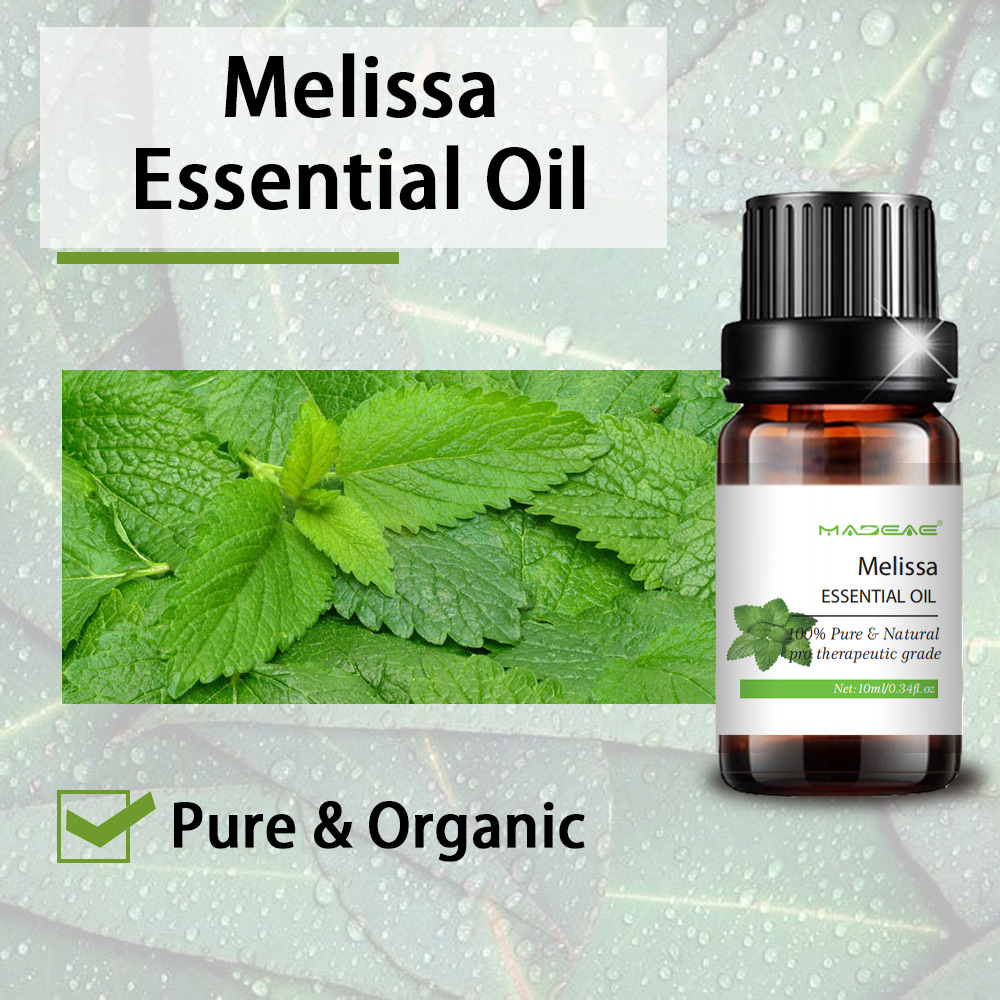Melissa essential oil, also known as lemon balm oil, is used in traditional medicine to treat a number of health concerns, including insomnia, anxiety, migraines, hypertension, diabetes, herpes and dementia. This lemon-scented oil can be applied topically, taken internally or diffused at home.
One of the most well-known melissa essential oil benefits is its ability to treat cold sores, or herpes simplex virus 1 and 2, naturally and without the need for antibiotics that may add to the growth of resistant bacterial strains in the body. Its antiviral and antimicrobial properties are only some of the potent and therapeutic qualities of this valued essential oil.
Benefits of Melissa Essential Oil
1. May Improve Symptoms of Alzheimer’s Disease
Melissa is probably the most studied of the essential oils for its ability to serve as a natural treatment for Alzheimer’s, and it’s very likely one of the most effective. Scientists at Newcastle General Hospital’s Institute for Aging and Health conducted a placebo-controlled trial to determine the value of melissa essential oil for agitation in people with severe dementia, which is a frequent and major management problem, especially for patients with severe cognitive impairment. Seventy-two patients with clinically significant agitation in the context of severe dementia were randomly assigned to the Melissa essential oil or placebo treatment group.
2. Possesses Anti-inflammatory Activity
Research has shown that melissa oil can be used to treat various diseases associated with inflammation and pain. A 2013 study published in Advances in Pharmacological Science investigated the anti-inflammatory properties of melissa essential oil by using experimental trauma-induced hind paw edema in rats. The anti-inflammatory properties of oral administration of melissa oil showed a significant reduction and inhibition of edema, which is swelling caused by excess fluid that is trapped in the body’s tissues.
The results of this study and many like it suggest that melissa oil can be taken internally or applied topically to reduce swelling and relieve pain due to its anti-inflammatory activity.
3. Prevents and Treats Infections
As many of us already know, the widespread use of antimicrobial agents causes resistant bacterial strains, which can seriously compromise the effectiveness of antibiotic treatment thanks to this antibiotic resistance. Research suggests that the use of herbal medicines might be a precautionary measure to prevent the development of resistance to synthetic antibiotics that are associated with therapeutic failures.
Melissa oil has been evaluated by researchers for its ability to stop bacterial infections. The most important identified compounds in melissa oil that are well-known for their antimicrobial effects are citral, citronellal and trans-caryophyllene. A 2008 study showed that melissa oil exhibited a higher degree of antibacterial activity than did lavender oil against Gram-positive bacterial strains, including candida.
4. Has Anti-diabetic Effects
Studies suggest that melissa oil is an efficient hypoglycemic and anti-diabetic agent, probably due to enhanced glucose uptake and metabolism in the liver, along with adipose tissue and the inhibition of gluconeogenesis in the liver.
5. Promotes Skin Health
Melissa oil is used for naturally treating eczema, acne and minor wounds, as it has antibacterial and antifungal properties. In studies that involve topical use of melissa oil, healing times were found to be statistically better in the groups treated with lemon balm oil. It’s gentle enough to apply directly to the skin and helps clear up skin conditions that are caused by bacteria or fungus.
6. Treats Herpes and Other Viruses
Melissa is often the herb of choice for treating cold sores, as it’s effective at fighting viruses in the herpes virus family. It can be used to inhibit the spread of viral infections, which can be especially helpful for people who have developed a resistance to commonly used antiviral agents.
Post time: May-03-2023


